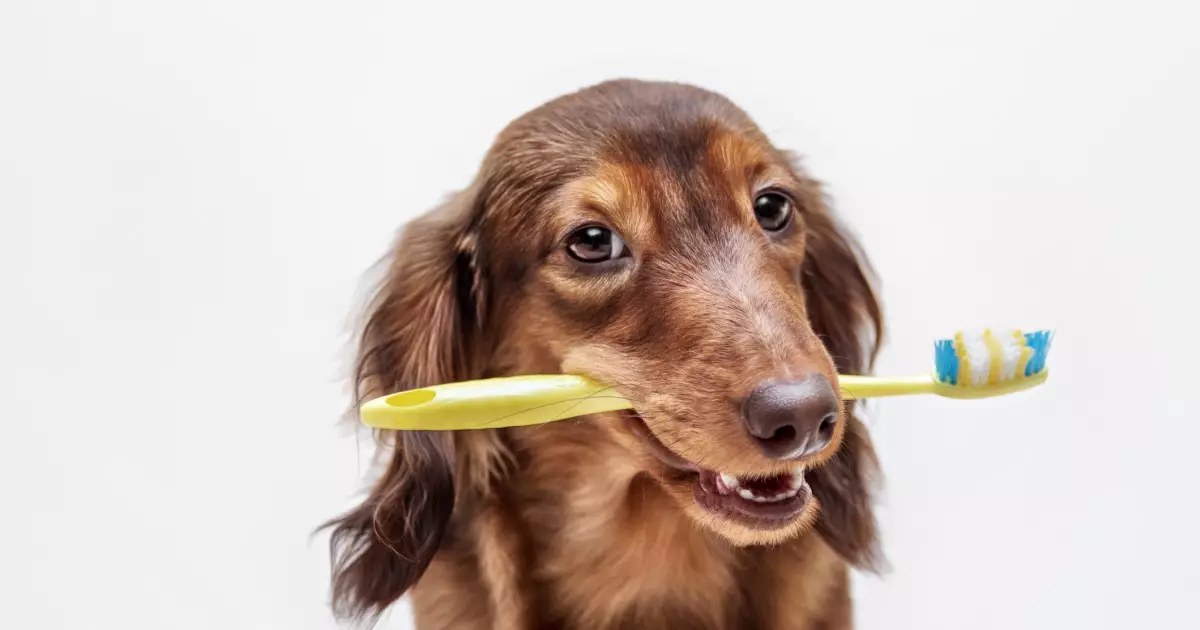As dog owners, we often prioritize our pets’ health and happiness, but we may overlook an essential aspect of their well-being: dental hygiene. Just like humans, dogs are susceptible to various dental issues, including tartar buildup and gingivitis. These problems can escalate into more severe health conditions, leading to tooth loss or systemic issues that can affect the heart, liver, or kidneys. Consequently, regular dental care is imperative for your dog to maintain not only a healthy mouth but also overall health.
Preventative dental care is crucial in managing your dog’s oral health. Neglecting dental hygiene can result in the emergence of bacteria that cause gum diseases and other serious complications. Regularly brushing your dog’s teeth and incorporating dental checks into their routine vet visits can significantly reduce the risk of these issues. After all, a healthy mouth is interconnected with a healthy body, making it vital for your dog’s long-term well-being.
Establishing a routine for dental care will not only keep your dog’s teeth clean but can also build a strong bond between you and your pet. Taking the effort to brush your dog’s teeth fosters a sense of trust and comfort, reinforcing the significance of regular dental attention.
When introducing tooth brushing to your dog, it is important to take it slow. Start using a finger brush, allowing your dog to get used to the sensation of having their mouth touched. Gradually work your way towards brushing their teeth with soft, circular motions. The key is to create a positive experience; introducing toothpaste designed specifically for dogs can make the process more enjoyable. Never use human toothpaste, as the ingredients can be harmful to dogs.
Rewarding your dog with treats or affection after brushing will encourage them to view the process positively. The more relaxed your dog is during brushing, the more likely they will become accustomed to this vital routine. For many small and toy breeds, daily brushing is crucial, while some larger breeds may only need it a few times a week.
Your dog’s diet also plays a significant role in their oral health. Consult your veterinarian to ensure that you are providing your canine companion with a balanced diet that avoids sugar-laden human foods, which can contribute to dental decay and general ill health. Instead of table scraps, offer high-quality commercial dog food that promotes dental health.
Moreover, appropriate chewing methods are essential not just for cleaning their teeth but also for overall oral hygiene. While chewing can be beneficial, certain bones and chews pose risks, including choking hazards or internal organ damage. Avoid giving your dog rawhide bones, as they may contain harmful chemicals. It’s best to select chews that have been veterinarian-approved and to replace them regularly to avoid any choking risks.
Engagement through play can significantly improve your dog’s dental health as well. Investing in sturdy toys designed for dental care will contribute to your dog’s oral hygiene while offering physical exercise. Rope toys and rubber dental chews can help remove plaque during playtime. Always supervise your dog while they chew to ensure they do not swallow any large pieces or have any adverse reactions.
This type of interactive play keeps your dog not just physically fit, but it also stimulates their mental faculties, which is just as important as physical exercise.
Even with the best preventive dentistry habits at home, nothing beats regular veterinary visits for thorough teeth cleanings. These professional cleanings are paramount for eliminating tartar that may have built up despite your home care efforts. Schedule these visits annually or semiannually, and treat them with the same importance you would attach to your own dental appointments.
If your dog has anxiety about anesthesia, discuss alternatives with your veterinarian, such as non-anesthesia dental cleanings. However, bear in mind that some vets caution that these methods may not effectively remove deeper plaque or tartar buildup. It’s crucial to follow your vet’s advice on the best approach for your dog’s dental healthcare.
One aspect of dog dental care that cannot be neglected is the ability of professional veterinarians to diagnose underlying issues. Your dog may experience pain from dental diseases without exhibiting obvious signs. Regular vet visits can help identify such problems, ensuring your furry friend remains healthy and happy.
Prioritizing dental care is an integral part of maintaining your dog’s overall health. From regular brushing to ensuring proper nutrition and scheduling professional cleanings, each aspect plays a crucial role in keeping your dog’s teeth in peak condition. A proactive approach to oral hygiene will ensure that your beloved pet leads a long, healthy, and happy life.

